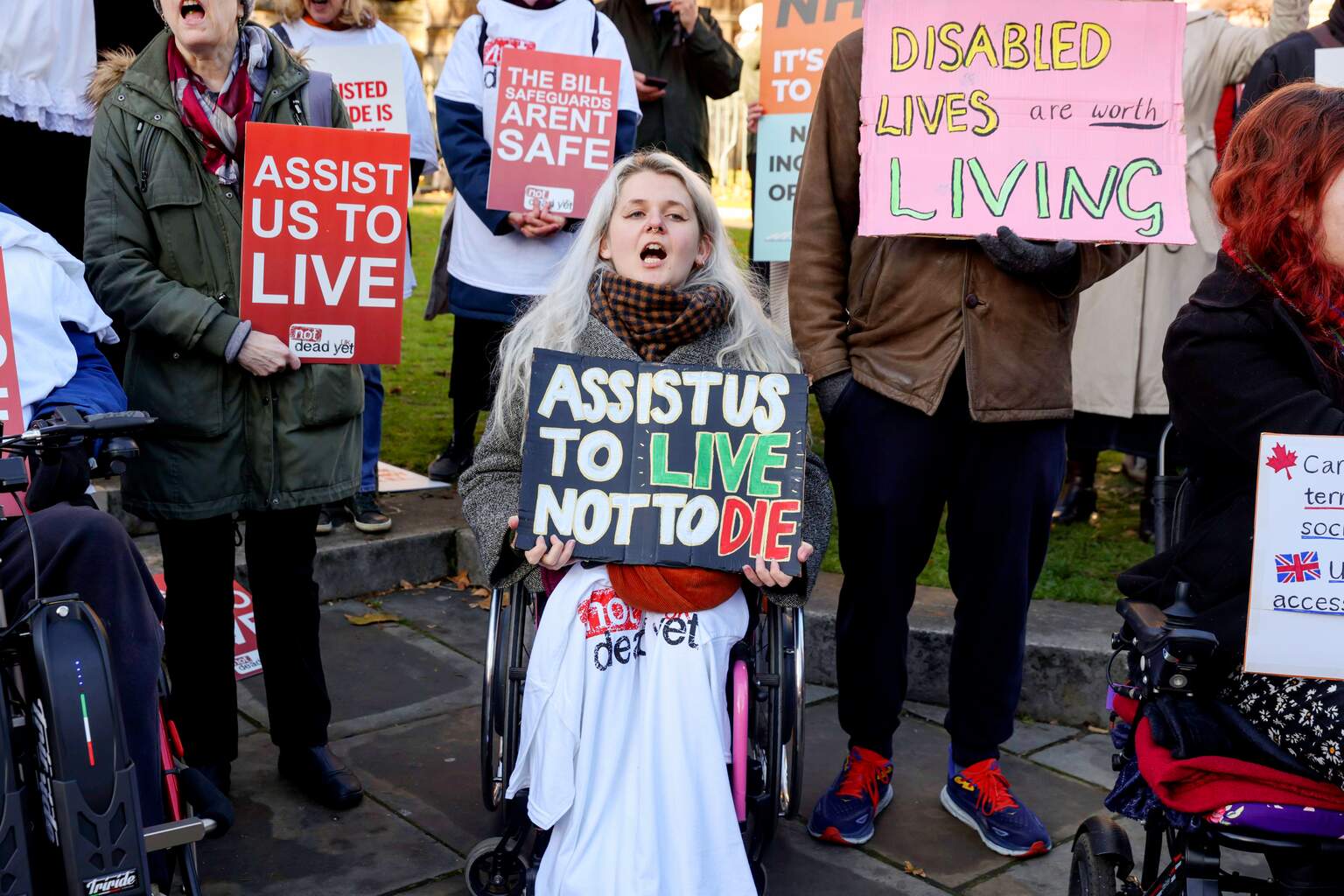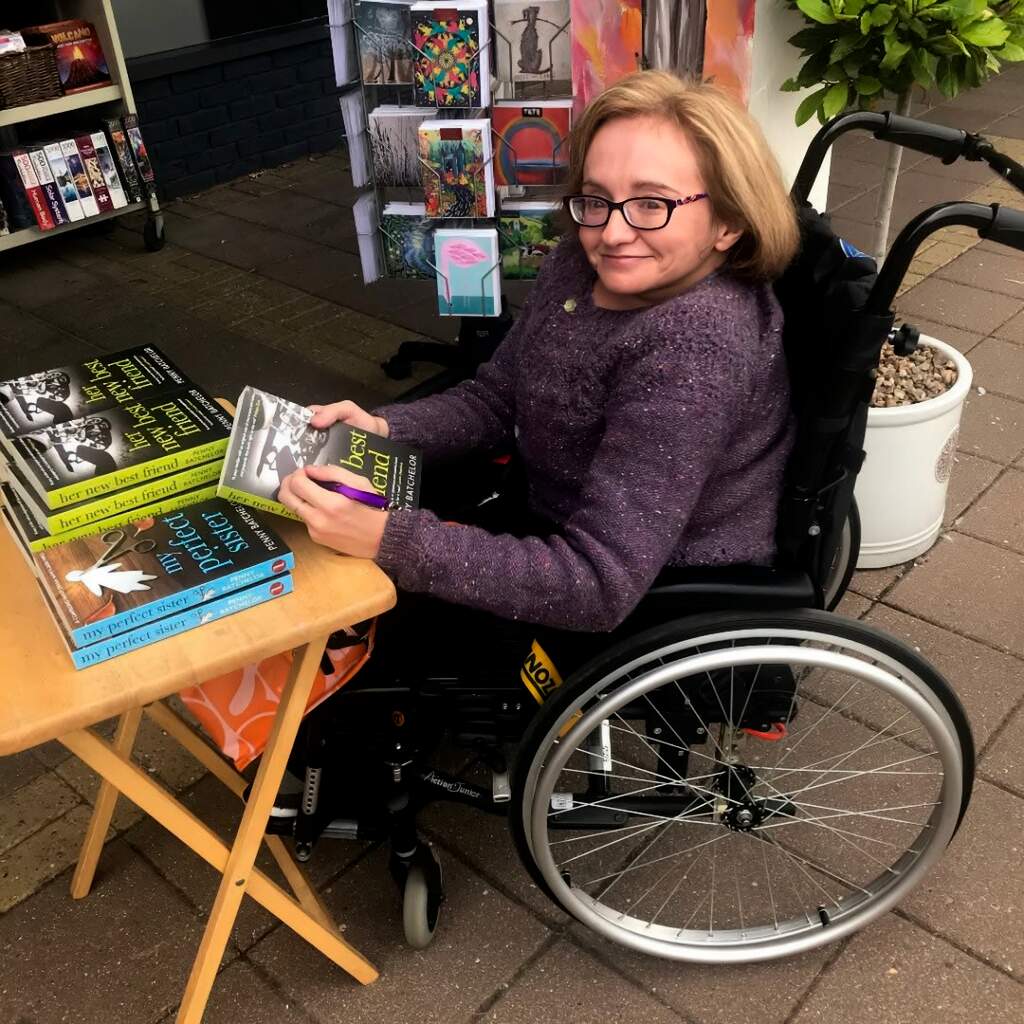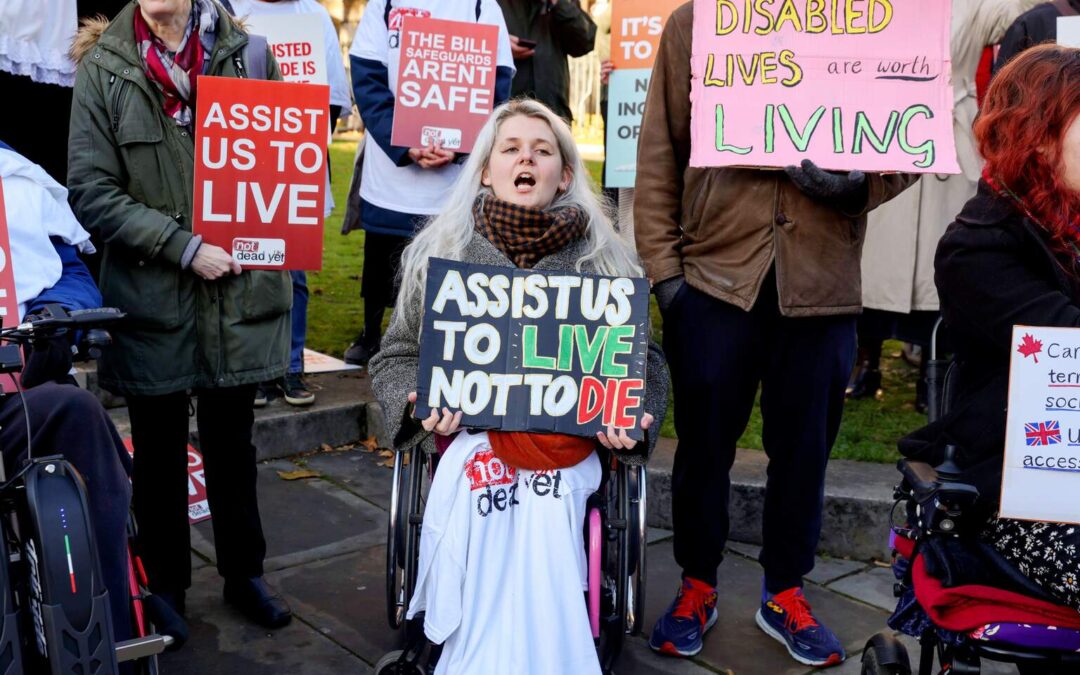‘THE NEW ASSISTED DYING BILL HAS SPAKED FEAR AMONG DISABLED PEOPLE LIKE ME’
Penny Batchelor, who has a genetic bone disorder, believes the proposed law fails to safeguard the vulnerable.
Words By Penny Batchelor

On Friday 2 May, tucked between the local election results and a bank holiday weekend, the Government quietly released its equality impact assessment for the assisted dying bill, which reaches the report stage in Parliament this week.
Predictions about how the bill could save the NHS almost £60 million sparked fear in disabled people. I’m one of them: I was born with the rare physical disability osteogenesis imperfecta, a genetic bone disorder. I’m worried that terminally ill and disabled people will be seen as a financial drain on society, and about the bill’s lack of safeguards against coercion and financial or family pressure to seek an assisted death.
The Labour MP Kim Leadbeater’s proposed Terminally Ill Adults (End of Life) Bill would allow adults who are terminally ill to request and be provided with assistance to end their own life. However, I’m concerned it’s fallible. For a start, it’s hard to trust that the Government will protect the vulnerable, especially when we remember ill and elderly people having ‘do not resuscitate’ orders placed on their records without consent during the pandemic.

In 2017, we heard surgeon and assisted dying campaigner Dr Henry Marsh say, ‘Even if a few grannies get bullied into assisted dying, isn’t that a price worth paying for all those who could die with dignity?’ While the journalist Sherelle Jacobs wrote in The Telegraph that ‘The taboo that nobody dares to articulate is that assisted dying will leave society financially better off.’
Ailidh Musgrave, a campaigner and expert by experience for the NHS, shared her own safeguarding concerns with MPs last month. In 2019, doctors said her life was at risk because she was dangerously underweight from living with anorexia since she was 13. She refused rehydration and feeding support and it was only her mother encouraging her to eat that kept her alive.
Now 28 and in recovery, she told MPs, ‘The assisted dying bill frightens me because had it been legal back then, I could and would have accessed it to end my life.’ Now in recovery, she’s living a life ‘more amazing than I ever dreamed possible’, something that couldn’t have happened had assisted dying been an option for her.
During the committee stage a proposed bill amendment to prevent people with anorexia from accessing assisted dying was outvoted, along with other safeguards, including making it illegal to encourage someone to seek assisted dying. The group of 23 MPs making up the committee, all picked by Leadbeater, consisted of 14 in favour of the bill and nine against it.
‘Thinking about this bill breaks my heart.’
Supporters of the bill insist that it’s for terminally ill people only, not disabled people, rejecting concerns about the so called ‘slippery slope’ effect, despite countries such as Canada, which legalised assisted dying in 2016, expanding it to include serious non- terminal chronic physical conditions in 2021 and mooting plans to widen the law to include mental illness. Former Paralympian Baroness Tanni Grey-Thompson disputes this. ‘We keep being told, “It isn’t for you”. But it’s not true that the bill cannot be amended once it reaches the statute books.’
Canada has one of the highest rates of euthanasia in the world and moves to make it more accessible have been met with concern. It’s even been reported that applicants have given financial reasons for their desire to die. Actor, campaigner and author of the award-winning assisted suicide documentary Better Off Dead? Liz Carr reiterates that ‘lives should never be measured on the basis of financial worth’.
An alternative for the assisted dying question could be a royal commission that offers an independent legal and ethical review to inform policy decisions. For true end-of-life choice, we also need better palliative care. In its current rushed form, Grey- Thompson says the bill ‘puts disabled and other vulnerable people at grave risk by providing financial incentives to an already overburdened and under-resourced NHS to offer assisted dying as a treatment option’. Meanwhile, Musgrave continues to campaign for the bill in its current form to be voted down. ‘Thinking about this bill breaks my heart,’ she says.
Penny Batchelor’s latest book, ‘The WomanNext Door’, is published 15 May
Photo: Getty

